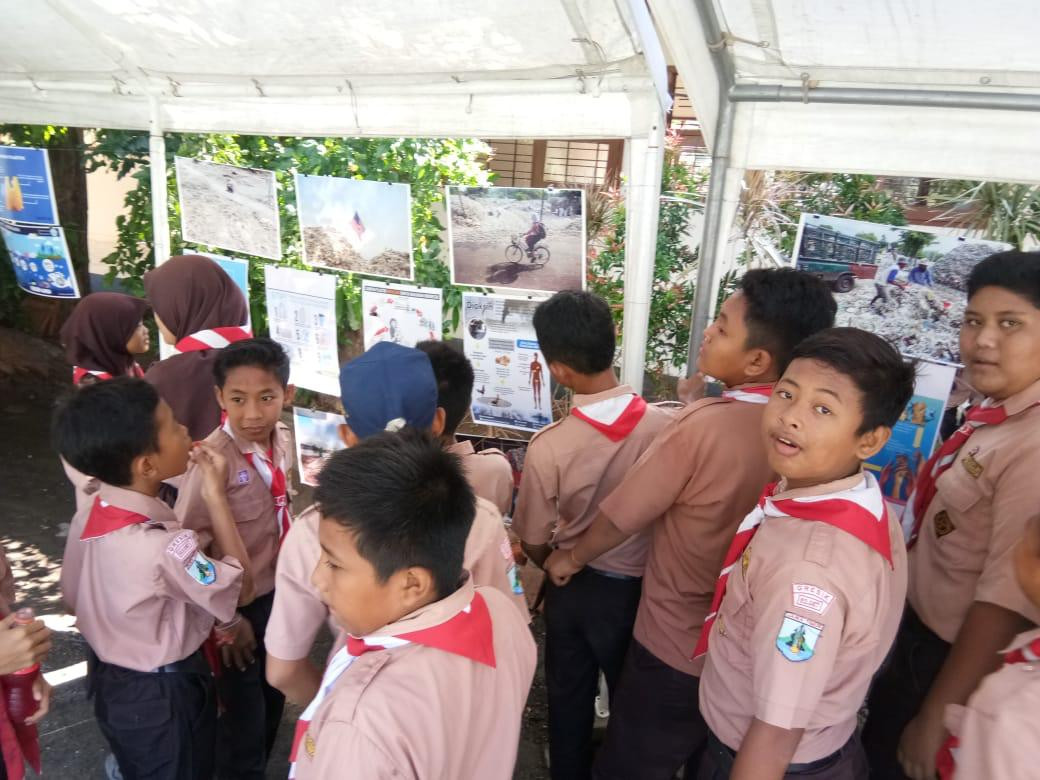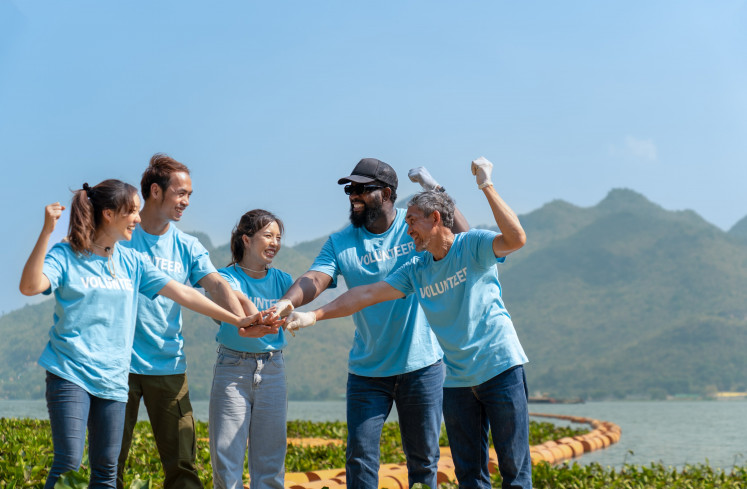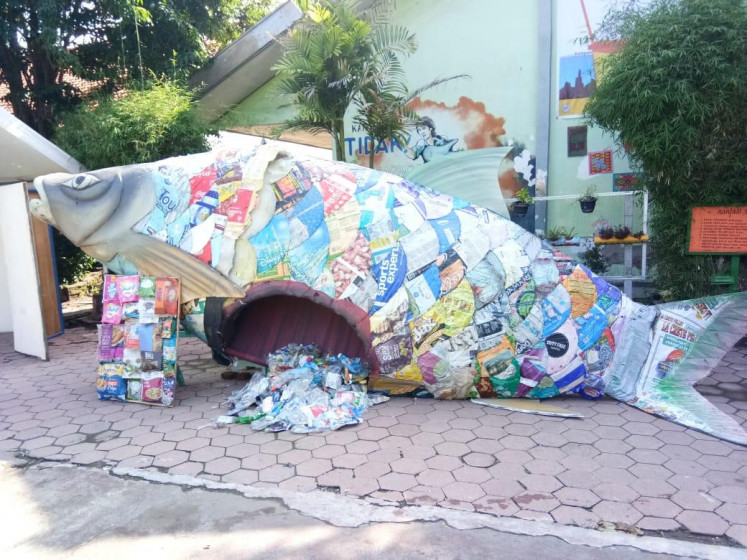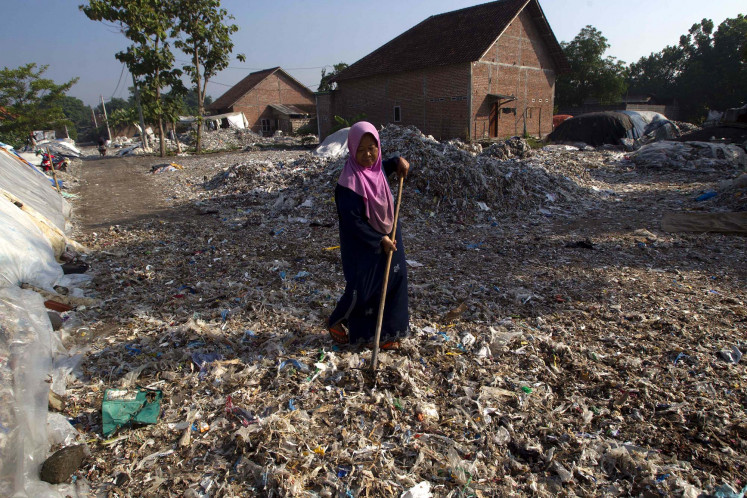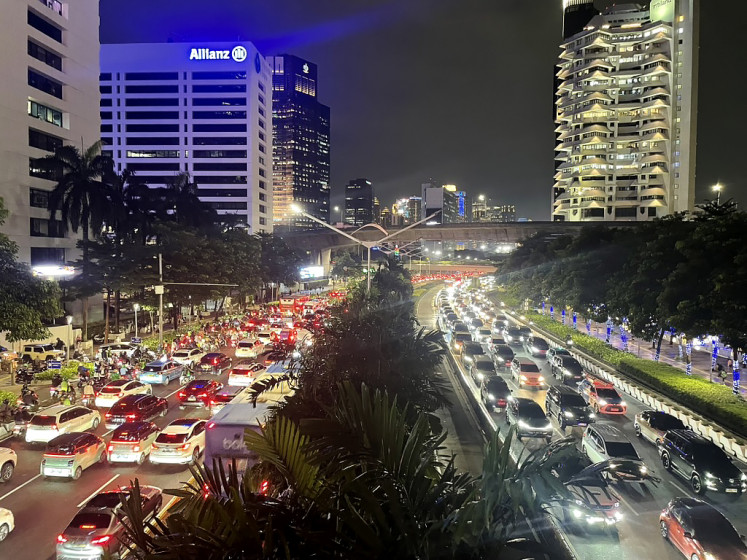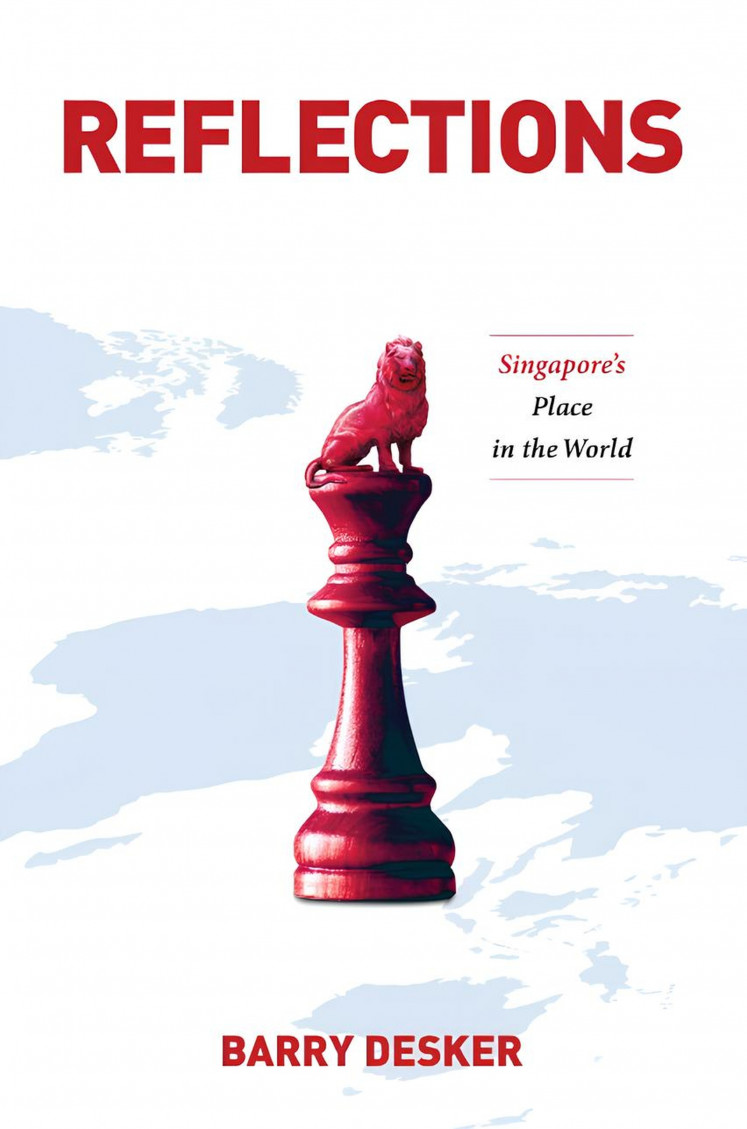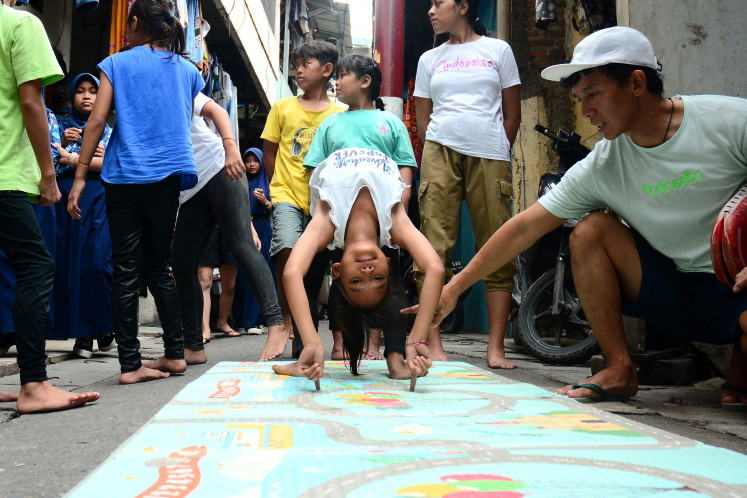Popular Reads
Top Results
Can't find what you're looking for?
View all search resultsPopular Reads
Top Results
Can't find what you're looking for?
View all search results‘I want my future to be better’: East Java student sends letter to Merkel about imported trash
"I don’t want to eat fish that has eaten plastics,” she also said.
Change text size
Gift Premium Articles
to Anyone
D
evastated at seeing a village in Gresik, East Java, flooded with imported waste from several European countries, including Germany, 12-year-old Aeshnina Azzahra sent a letter to German Chancellor Angela Merkel, demanding that country stop sending waste to Indonesia.
In her letter, which was written in English, the young environmentalist and student of SMP 12 Gresik state junior high school explained how she and her best friends one day visited Bangun village in the regency where the residents received all sorts of trash to be sorted for recycling in order to make a living.
As she said in her letter she found that most of the garbage was from developed countries such as the United States, the United Kingdom, Australia and also Germany. She also learned that the waste entered Indonesia through Tanjung Perak Port in Surabaya, East Java.
“We are overwhelmed by the imported trash. This makes me very sad,” she wrote in a letter made available to The Jakarta Post on Monday.
Read also: Bangun, a village built from imported waste
“I found a German national ID when I looked into the trash. I also found food packages that have ‘Made in Germany’ written on them. Why does Germany send its trash to Indonesia? I want my future to be better. I want Indonesia to be clean.”
Despite local residents relying on the waste to earn money to feed their families, Nina said she believed that too much plastic waste damaged the environment. She noticed plastic waste polluting rivers and being carried to the ocean, harming maritime ecosystems.
“I bought a fish at Rolak Songo Market [in Sidoarjo, East Java] and when I opened its stomach I found plastics. I don’t want to eat fish that has eaten plastics,” she added.
A giant fish made of plastic trash is part of an environmental exhibition in state junior high school SMP 12 in Gresik, East Java on Jan. 18. (Courtesy of Prigi Arisandi/-)Adding to that, it was also discovered that some tofu factories in Tropodo village, also in Sidoarjo, have been using plastic waste as fuel for their production.
Read also: Imported plastic saves tofu makers in East Java, but poisons their own villages
The practice produces chemical waste that pollutes the soil and increases the dioxin content in chicken’s eggs. Dioxin is a pollutant that can cause cancer.
Nina went on to note how Indonesia has been named as the world’s second-largest plastic waste producer, but at the same time it has also been a dumping ground for many Western countries for years.
Greenpeace last year estimated that Indonesia’s waste imports soared from 120,000 tons in 2017 to 420,000 in 2018. The UK exported the most to the archipelago, with 67,807 tons between January and November 2018, followed by Germany with 59,668 tons and Australia with 42,130 tons.
Throughout 2019 Indonesia returned hundreds of containers filled with contaminated nonhazardous waste from the US, Europe and Australia. The nonhazardous waste was supposed to contain clean scrap paper to be recycled, but it was contaminated with hazardous and toxic waste such as diapers and plastic, most of which eventually would end up as garbage in landfills.
Nina ended her letter by calling on the German government to tell the other European countries to stop sending plastic waste to Indonesia and other developing countries in Asia.
“Take back your trash from Indonesia!” she said. Nina is slated to visit Jakarta on Tuesday to meet German Ambassador to Indonesia Peter Schoof and personally hand over the letter.
A woman dries waste in front of her house in Bangun village, Mojokerto, East Java. (JP/Sigit Pamungkas)Last Saturday, Nina, with the support from teachers in her school, initiated a petition and invited her school friends to sign it.
That day, some parts of the school yard were decorated by photos of plastic waste and how it affects the environment and a giant fish made out of plastic waste, which were aimed at raising students’ awareness about the issue.
In July last year, Nina also wrote a similar letter to US President Donald Trump to protest about the incoming trash, given that the US was among the largest exporters of waste to Indonesia.
She explained how rivers in her neighborhood were “very dirty and smelly” as many factories – or plastic recyclers that handle the imported waste – dispose of their waste carelessly on land and water.
“Why do you always export your waste to my country? Why don’t you take care of your own waste,” she wrote in her letter to Trump.

